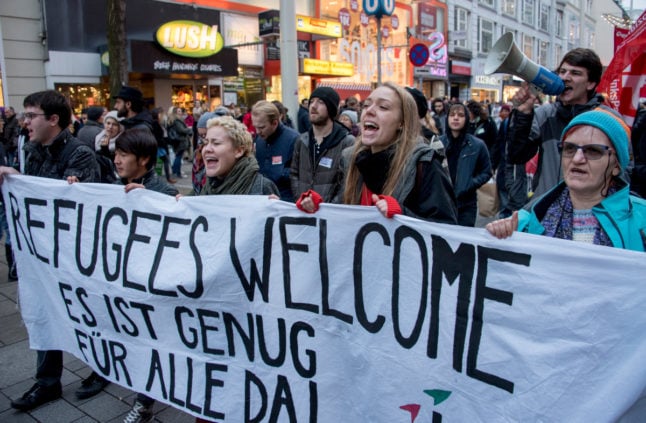“It doesn’t take more than an A4 piece of paper and a couple of hand signs to set up a political party in Austria… In Germany we had to mess around with secret ballots,” said Nico Wehnemann, member of the executive board of Die Partei in North Rhine-Westphalia.
He provocatively described Die Partei as the first German party that was seriously seeking to do something in Austria since 1938.
“On a previous occasion German policy was imported to Austria with great jubilation and we hope and trust that Austrians in 2014 will find it difficult to learn from history, and that we will be welcomed with thunderous applause again,” said Marcel Pierre Hintner, who has been elected as general secretary of the Austrian branch of Die Partei.
He said that he plans to set up a youth organisation called the Hintner Youth.
Hintner added that Die Partei will campaign for traditional Austrian policies, and proposed a marriage between Austria and US President Barack Obama’s daughter, alluding to the Habsburg’s policy of dynastic marriages which enabled the family to expand its domains.
State elections will be held in several Austrian states in 2016 and Hintner said he hopes to win support for Die Partei. He said the party’s chances look best in Vienna “because it’s already governed by a power hungry and corrupt party. Therefore, people will hardly notice a change of power."
Should Die Partei win a majority in Vienna he said that all social housing would be given to Die Partei members. The old city walls would be rebuilt along the Ringstrasse and the 1st district would be made into a ghetto for “rich people and tourists”.
In other Austrian states Die Partei plans to campaign under the slogan “Wien ist scheisse” (Vienna is shit).
The party will also argue that Austria needs access to the sea and will campaign for “forced gay marriage”. “One in three children in schools should be gay and we will demand a state supported ‘gay year’ for every child,” Hintner said.
“I promise you, we’ll ruin this country, but at half the price,” he added.
Die Partei's Austrian Facebook group already had over 2,000 likes, just days after it was set up.
Die Partei was formed in Germany in 2004 by comedian Martin Sonneborn, who edited the German satirical magazine Titanic. Sonneborn won a seat in the European Parliament in May.
He lured German voters with pledges to build a wall around Switzerland, put Chancellor Angela Merkel on a show trial in the Berlin Olympic stadium and to frack the rotund politicians Sigmar Gabriel and Peter Altmaier for cheap gas.



 Please whitelist us to continue reading.
Please whitelist us to continue reading.
Member comments